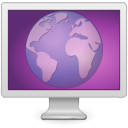Homepage › Forums › Articles › Operating Systems › Windows › Quick DLL Intro
This topic was published by DevynCJohnson and viewed 1667 times since "". The last page revision was "".
- AuthorPosts
DLL (Dynamic-Link Library) files on Windows systems are shared library files. They use the Portable Executable (PE) file format on 32 and 64-bit Windows systems. The files use the *.dll extension, but they may use *.ocx if they contain ActiveX controls. DLL files use the "application/x-msdownload" mimetype.
DLL files are executable libraries, although they do not execute directly like a program. Rather, programs can import functions and data from DLL files. Many programming languages can import DLL files including C/C++, Visual Basic, Python, Delphi, and others.
DLL have many advantages.
- They consume less resources since they are only loaded when used rather than loaded onto RAM all at once (like the program's functions).
- Bug fixes are easier since a single DLL can be replaced rather than recompiling a whole set of programs.
- It is easier to create modular programs and systems via DLL files.
- When multiple programs load the same DLL, the file is only loaded onto the RAM once.
Further Reading
- General Windows Topics (Article Index) - https://dcjtech.info/topic/general-windows-topics/
- AuthorPosts
